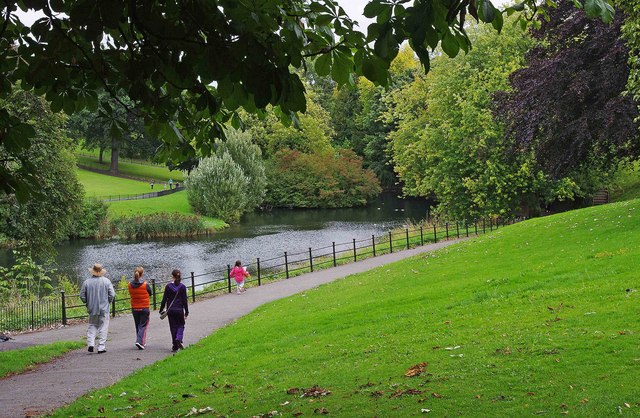In the past week, Dublin has been decorated with new, bright posters of young people extolling the virtues of an “outdoor summer”. Yet, if the controversy during the last week has shown us anything, it is that the very idea of an “outdoor summer” is meaningless without access to public spaces and facilities. While many are understandably frustrated by the sight of large groups and littered streets, it must be acknowledged that it is the state’s failure to prepare for a Covid-safe season – not socially starved young people – who are to blame for this farcical beginning to our “outdoor summer”.
When videos and images of hundreds of young people drinking on South William Street first came to national attention, many were angered and disappointed. This is hardly surprising, given the long year of on-and-off lockdowns endured by the public. To see such non-Covid-compliant events just as the pandemic’s end appears visible will of course worry people. Yet in the flurry of angry tweets and radio condemnations, one key question has often remained unanswered: why did so many people gather on South William Street specifically?
“Hundreds of small gatherings that could easily have been dispersed across the city are forced to take place in only a handful of locations, risking the spread of the virus.”
The answer is that Dublin City currently suffers from a severe shortage of public spaces. This is no surprise to those of us living in the city, who are already well aware of Dublin’s oftentimes inhospitable nature as a result of its heavy traffic congestion and the paucity of pedestrianisation. The problem has only been exacerbated by Dublin City Council and the Gardaí’s decision to close entire streets and areas (such as Portobello Plaza, South William Street, and Temple Bar) in response to public drinking. While authorities clearly believe that these gatherings will be avoided by closing public space, the actual result is that those who wish to meet friends outdoors in compliance with government guidelines are instead pushed into an increasingly limited list of public spaces. Huge, unorganised gatherings such as those on the pedestrianised South William Street are a direct result of Dublin City Council’s actions. Hundreds of small gatherings that could easily have been dispersed across the city are forced to take place in only a handful of locations, risking the spread of the virus. By this late stage in the pandemic, it is now blindingly obvious that communication is key to navigating any country through the crisis. How then does it help to demand that people adhere to an “outdoor summer” while shutting down every space that could actually host it?
The actions of Dublin City Council and Gardaí are certainly worthy of criticism, but it would be far too easy to lay the blame on these institutions alone. The fault ultimately lies at the feet of a state that no longer understands the material situation of the people it governs. In light of the closures of safe public spaces, it is now patently obvious that the “outdoor summer” we were promised was designed with the assumption that the vast majority of Irish people have access to large sunlit gardens in which they can socially distance from others at all times. It is the state’s own failure to deliver affordable housing that makes it impossible for most of us to afford more than a studio apartment. The hope that the reintroduction of outdoor dining will help to prevent public drinking rests on the equally shaky assumption that most Irish people can afford to spend an entire summer dining out. Such a deep-seated misunderstanding of the state of Irish society should be shocking. However, in a government with senior ministers who pride themselves on their approach to the housing crisis while simultaneously objecting to developments in their own constituencies, it is disappointingly unsurprising.
“The intensity of policing against those largely complying with the government message in recent days far outstretches that used even in the face of often-hostile anti-lockdown protests.”
The current approach to the “outdoor summer” campaign also disproportionately impacts negatively on young people who are far more likely to be in need of public spaces. The state shows little interest in recognising this and has instead continually scapegoated the young and less wealthy throughout the pandemic; government ministers complaining of student “welfare dependency” on the Pandemic Unemployment Payment (PUP) is just one example. The recent heavy-handed approach of Gardaí to public drinking in Dublin should itself be regarded as a continuation of this scapegoating. The intensity of policing against those largely complying with the government message in recent days far outstretches that used even in the face of often-hostile anti-lockdown protests. This will almost certainly harm the country’s recovery from the pandemic— while pedestrianisation, provision of additional public facilities and Garda restraint could enable an enjoyable Covid-safe summer, the spectacle of baton-charges, drink confiscations and forced street closures will only drive people to house parties and other indoor events. It is important that young and working class people are not again scapegoated for a possible future rise in cases in the wake of this. Less safe indoor gatherings now are the natural result of heavy-handed policing and insufficient public spaces.
Dublin City Council’s recent move to introduce more public toilets should be welcomed. However, with the hot summer months fast approaching, the promise of an “outdoor summer” is hanging by a thread. Despite a complete failure to prepare, it can still be salvaged if enough additional public spaces and facilities are provided, and if policing is significantly relaxed. The lack of interest shown by the state in this regard unfortunately suggests otherwise. Far from an “outdoor summer”, we may very well be facing one of simmering discontent.






